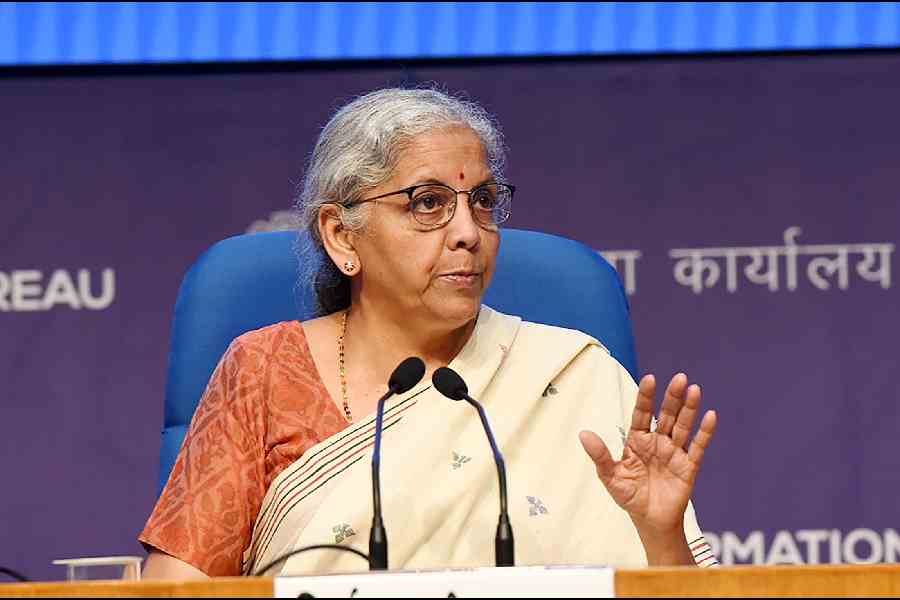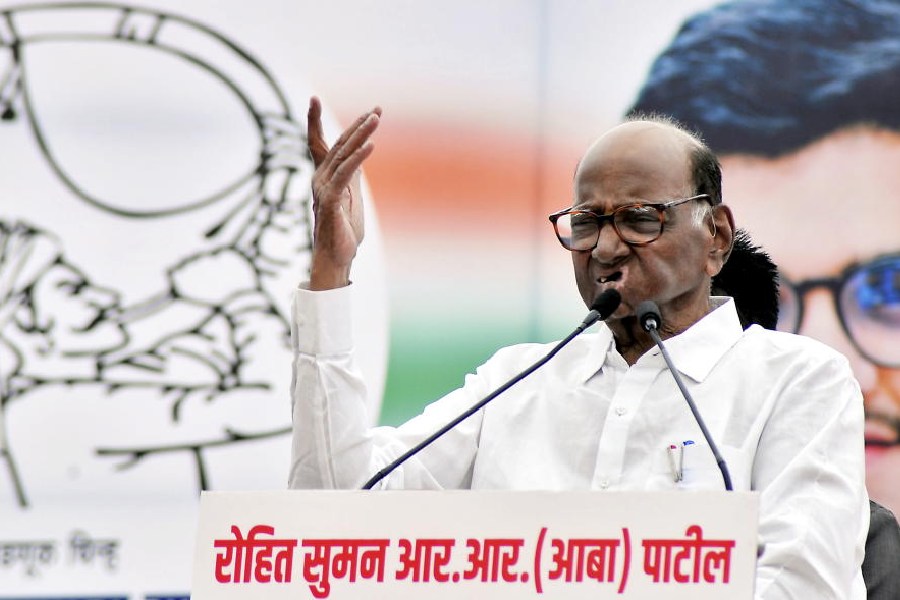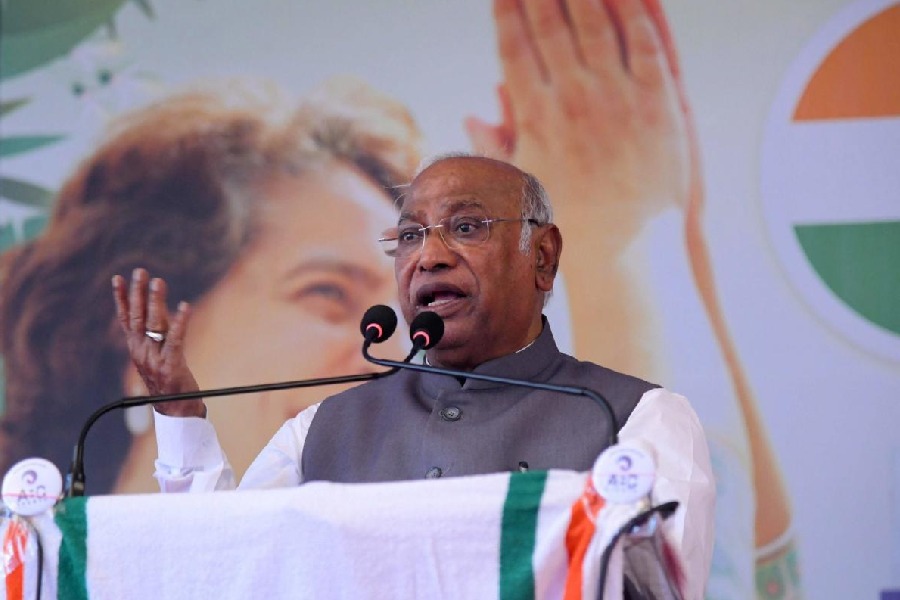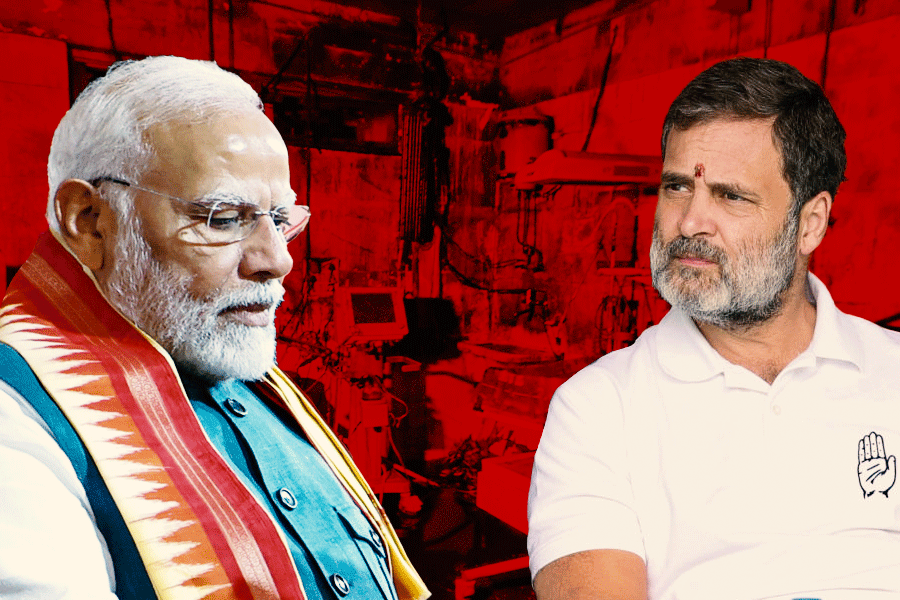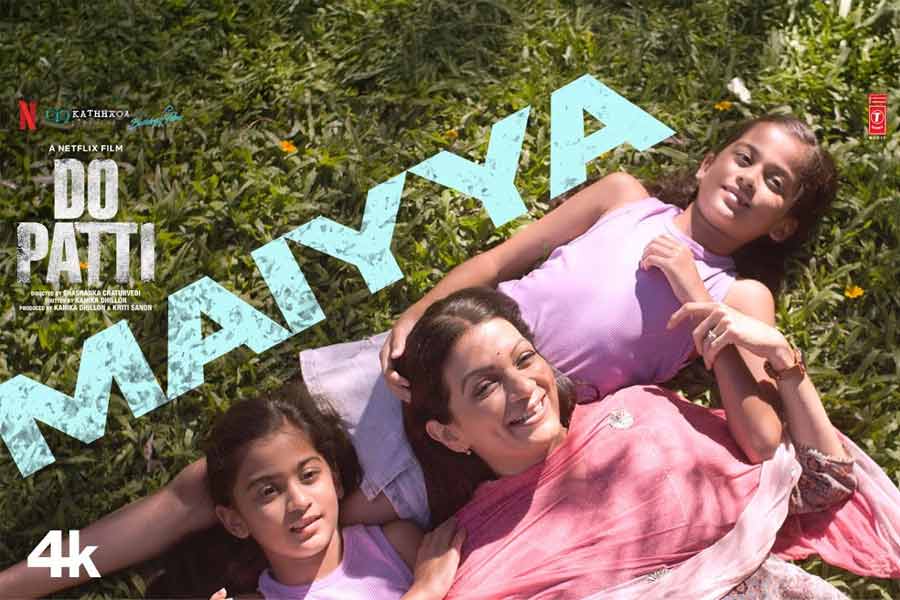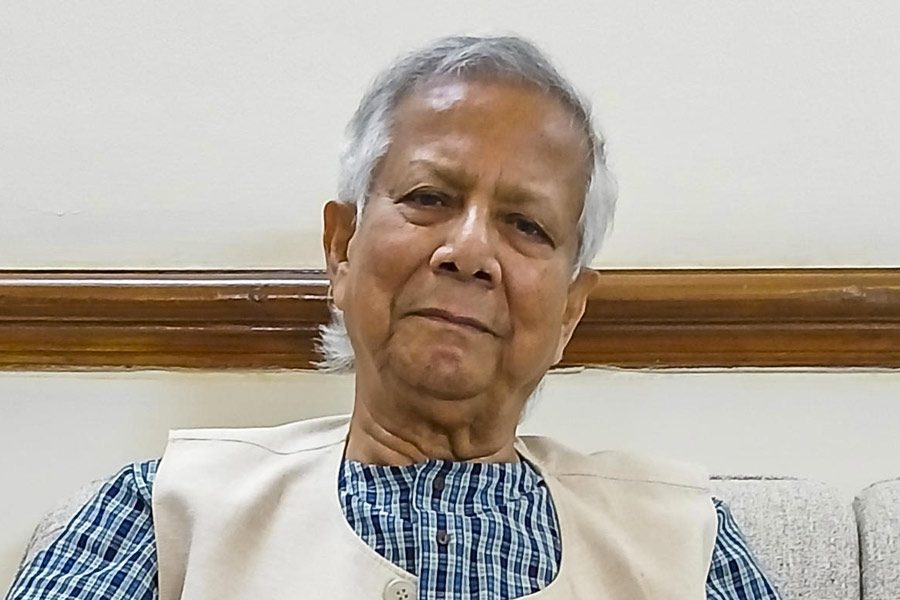Finance Minister Nirmala Sitharaman on Thursday said the government is close to reaching saturation in implementing social sector schemes designed to provide basic necessities to the poor.
Addressing the students of Hindu College on the occasion of its 125th anniversary, she said the time has come for India to become economically 'aatmanirbhar' (self-reliant) and march forward to becoming a developed nation by 2047.
Regretting that 60 years since Independence passed without any sense of urgency, Sitharaman said, "We have laid the material foundation for a Viksit Bharat" and empowering people by providing basic necessities to all.
Even earlier government had schemes of providing houses, roads etc but the sense of urgency was missing, she said, adding, nearly 50 per cent of the population were devoid of fundamental things 50 or 60 years post independence.
"So that's the underlying principle with which between 2014 and today we have done with a sense of urgency. Push the border forward, you take it further. Make sure everybody who's actually eligible to get those should get it...the approach (of the government) is to empower people, skill people, give access and ensure that everyone gets good health treatment and so on," she said.
"We have expanded that and we are today close to saturation in many of these fundamental things which should be available irrespective of who you are," she said.
The finance minister also said the government has been able to save Rs 2.5 lakh crore through Direct Benefit Transfer (DBT) by weeding out dummy and undesirable beneficiaries.
DBT has not only improved transparency in the government fund transfer but also enhanced efficiency through the use of technology, she said.
Stressing that the government doesn't differentiate between people, Sitharaman said that is the reason why the prime minister categorises India in four groups--youth, women, farmers and poor-- and efforts are made for betterment of these groups irrespective of caste, creed and religion.
She also said that India is nearly self-sufficient as far as agriculture is concerned except in oil seeds and pulses.
However, she advocated that one should not waste food as many parts of the world are facing problems.
Terming Ram Lalla Pran Pratishtha ceremony of January 22 as a 'civilisational marker', she said, this was a fortunate moment for the generation who could witness restoration of civilisational values.
She urged the students to focus on skill development as well as on values -- both civilisational and nationalistic.
Reminding the students that the country celebrates National Voters' Day on January 25, she said, it is not just the right of citizens to vote but it is their duty also, and the first-time voters have greater responsibility.
She asked the students not to be misled by negativity being spread by various mediums, including social media.
Observing that India is the fastest growing major economy and companies and stock market are doing very well, she said, narrative is being build that "the Indian economy is not (doing) very well. It is sick." Contradicting the claim that the Indian economy is registering K-shaped recovery, Sitharaman said, "I want them to stand up and say on what basis are they saying it but they wouldn't be available for you to answer. They throw that idea and go away."
Except for the headline, this story has not been edited by The Telegraph Online staff and has been published from a syndicated feed.

